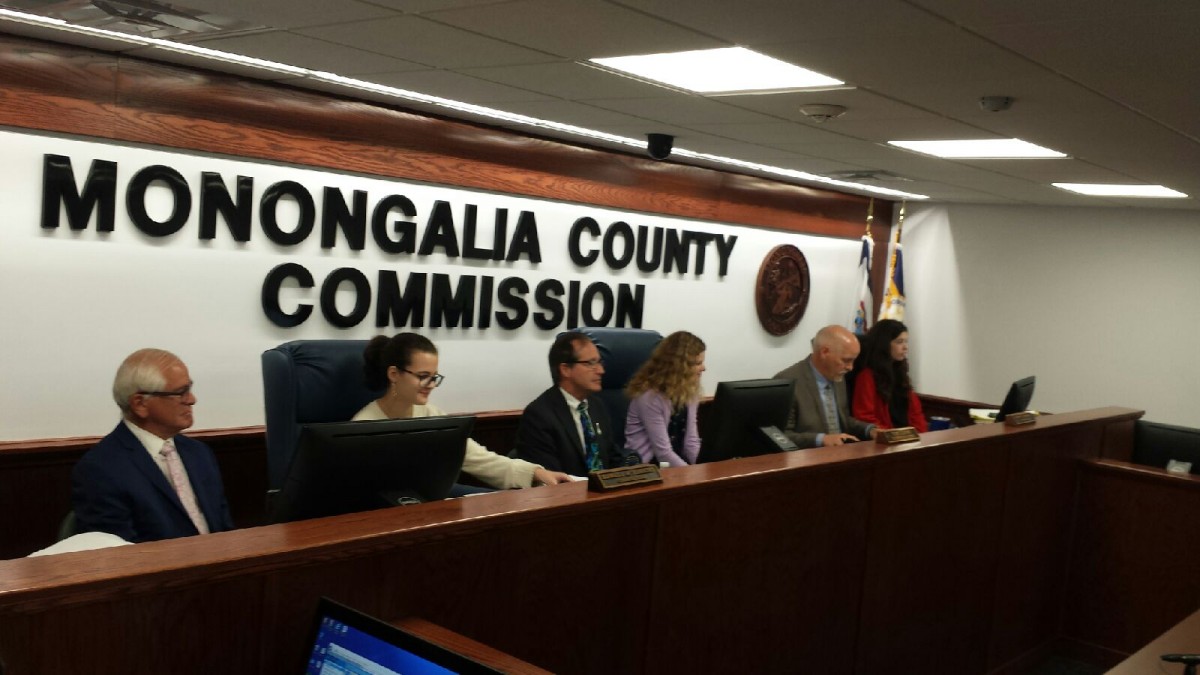In a written response to the Monongalia County Commission, Jim Kotcon, conservation chair for the West Virginia Chapter of the Sierra Club, said assertions made about the Appalachian Stewardship Foundation during last week’s commission meeting are “demonstrably incorrect.”
The commission is negotiating a PILOT, or payment in lieu of taxes, with Longview Power for a $1.1 billion solar and natural gas expansion to accompany the coal-fired power plant on Fort Martin Road.
This will be the second such agreement between the power producer and the county. As incentive to build the existing 710 megawatt, $2.2 billion coal plant locally, Longview signed a PILOT agreement in 2003 worth $105 million over 40 years. Those dollars began changing hands in 2011.
Kotocon explained that as part of a settlement regarding an air pollution permit for the original Longview Plant, an independent nonprofit — the Appalachian Stewardship Foundation — would receive $500,000 for the first 10 years of the agreement and $300,000 each year thereafter — $4,000,000 to date.
The Sierra Club, Trout Unlimited and the National Parks Conservation Association each appoint a board member to the ASF. Longview Power and AMD Reclamation each appoint one non-voting member.
After Kotcon questioned the county’s ongoing negotiations with Longview during the Jan. 15 meeting, Monongalia County Commissioner Tom Bloom responded by questioning the ASF’s use of those funds.
Bloom based his assertions on data provided by Longview President and CEO Jeffery Keffer, which claimed the ASF had spent less than $355,400 on the type of remediation efforts spelled out in the agreement and had spent more than $1.2 million on “lawyers and other activities.”
Both Kotcon and the ASF refute those numbers. In a letter to The Dominion Post, which was also published in a Jan. 21 post to the ASF website, ASF Chairman Larry Harris makes a number of points in responding to the reporting of the Jan. 15 meeting. Those include:
The funds provided to the ASF in the Longview settlement can be used to reduce greenhouse gasses; restore streams and fisheries; promote public awareness and create carbon-reduction research and projects.
The ASF has provided grants totaling $2.2 million to groups for these purposes since 2012.
The ASF does, as Keffer pointed out in his email to Bloom, have $1.6 million in an endowment to ensure the ASF can continue to provide grants at its current level, even after funding from Longview decreases.
The ASF has not paid $1.2 million to lawyers, or, as Harris explains, “ASF has not paid legal fees to any lawyer.”
In his correspondence, Kotcon points out that the ASF’s tax forms (990) are publicly available at apps.irs.gov/app/eos. He also points out that a list of the grants awarded by the ASF are available on the group’s website, appalachianstewards.org.
In comments at the end of Wednesday’s meeting, Commission President Ed Hawkins, who declined comment last week, said that after looking over the grants awarded by the ASF, he found “the letter of the law may be obeyed, but perhaps the spirit to be a bit lacking.”
Hawkins said he’s been a conservationist since joining 4-H as a child and has planted “hundreds of thousands” of trees since, noting he still plants about 250 trees annually.
“The best and easiest way to reduce carbon dioxide in the atmosphere is to plant trees,” Hawkins said, explaining that he was disappointed in the number of tree-planting efforts funded by the ASF.
Bloom said 13 of 105 grants provided addressed forest and stream mitigation, which is where the $355,400 figure in Keffer’s email came from.
In a written statement to The Dominion Post, Bloom said he remains skeptical that all of the grants provided by the ASF meet the criteria of the original settlement and that local nonprofits that do meet the criteria are being denied funding.
Bloom writes, “We believe the public needs to understand that this Foundation is receiving $500,000 a year (which is roughly 50% of what the school system is getting per year in property taxes from the PILOT).”
He went on to state that Longview is not receiving tax breaks, adding, “It would not have been build but for the PILOT.”
TWEET @DominionPostWV




